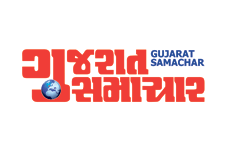The government has issued new Covid-19 secure guidelines to UK employers to help them get their businesses up and running and operating as safely as possible.
Consulting 250 stakeholders, including businesses, unions, industry bodies, devolved administrations in Northern Ireland, Scotland and Wales, Public Health England and the Health and Safety Executive, the government has developed best practice for safety in the workplace, providing people with the confidence they need to return to work. The new guidelines cover eight workplace settings which are allowed to open including outdoor environment, construction sites, factories and takeaways. The government has also asked employers to re-design workspaces to ensure a two-metre distance between employees by staggering start times, creating one-way walk-throughs, opening more entrances and exits, and changing seating layouts in break rooms. Workplaces need to be cleaned more frequently, paying close attention to high-contact objects like door handles and keyboards, provide hand washing facilities or hand sanitisers at entry and exit points.
JLR restarts production following government guidelines
On 20th May, the first Range Rover manufactured under new social distancing measures drove off the production line at Jaguar Land Rover’s manufacturing plant in Solihull, following a temporary pause in production due to the coronavirus pandemic. The team at the Engine Manufacturing Centre in Wolverhampton (UK) has resumed building Ingenium engines to enable the gradual return to vehicle production. Manufacturing will resume at Halewood (UK) on 8th June, starting with one shift. Small pockets of business-critical activity are taking place at Castle Bromwich as Jaguar Land Rover prepares to introduce new models this year.
Effective social distancing, hygiene and health monitoring measures are in place following an extensive review of all production lines, engineering facilities, office areas and communal spaces as the company starts a phased return to manufacturing.
At JLR, which is a part of India’s Tata Motors since 2008, employees’ health and well-being are at the centre of the new measures and with the implementation of the new protocol, staff are experiencing a significant number of changes to their working day from the moment they enter the site.
Measures include temperature checks with thermal cameras, a two-metre distance between people wherever possible, providing PPE where that is not possible, the introduction of one-way systems and enhanced cleaning at the plants. In addition, Jaguar Land Rover is offering every employee a reusable face visor made by the company.
The Solihull plant is 300 acres (the size of a small town) and has six Build Halls, each with individual requirements and processes that had to be considered before robust social distancing measures could be implemented.
In the assembly halls, employees carry out over 800 different jobs, fitting on average 2,800 components to each vehicle. Approximately 2,500 employees are on site now.
Over a thousand signs have been put up, reminding staff about social distancing.
Twenty thermal imaging cameras on site can read a person’s temperature almost instantaneously. Hundreds of litres of bespoke hand sanitisers have been produced at the Solihull factory, following WHO guidelines. Pocket-sized bottles of sanitisers are also given to everyone as they return to work.
Grant McPherson, JLR Executive Director, Manufacturing, acknowledged the changed environment. He said, “People will be experiencing many emotions, ranging from worry about hygiene, to relief at being able to return to work and excitement at seeing colleagues again.”
Dr. Steve Iley, JLR’s Chief Medical Officer said, “Clearly the health, safety and well-being of the Jaguar Land Rover family is our primary concern. We have developed the most effective protocol and guidelines so that our people feel reassured about coming back to the workplace. Our measures are based on extensive medical and operational review, including lessons learned from our teams in China and Slovakia. We continue to monitor the Covid-19 situation, following the guidance of all relevant authorities in the markets in which we operate, and will adapt quickly as that guidance changes.”
Property market gets ready to soar
46-year-old Rizwan (Rizz) Patel is a successful entrepreneur and philanthropist with over 30 years of experience in his business. As Managing Director, he has successfully managed Lint Group which is an umbrella group for Letting International, Ace Crest and Lint Developments- catering to a wide variety of clients, including private, local authorities and housing associations. Rizz employs around 150 staff across different businesses.
After a few weeks of closure caused by the current crisis, Rizz went back to work on 12 May 2020 and opened up his Ilford office to staff willing to return to work. “Business related activities have slowed down, but we initially brought 50% of our staff back to office on reduced hours, just to get them back on stride. Most were glad to come back to work after weeks of working from home.” he told Gujarat Samachar. “Our accounts team has been working remotely throughout the pandemic, and our engineers and maintenance team have been attending to absolute emergencies only, due to social distancing reasons.
"At Lint Group, the Covid-19 marketing strategy has really been the key. We have increased all marketing activity digitally, which included internal and external communications with our teams as well as our customers. As a result, everyone has been better engaged and better informed.”
He added, “75% of our staff are now back in the office working full-time. We have a very large office in Ilford, around 6000 sq ft, in which normally we would have 35-40 staff. So, social distancing is not an issue at all. There are masks available for everyone, antibacterial wipes, hand sanitisers, and PPE equipment where required.”
When asked how his staff was travelling to the office, Rizz said, “Majority of the people who work in our office drive down. Those that live locally either bicycle or walk. Inside our office, it is very easy to maintain social distancing. There is more than two metres distance between desks. Though we haven’t had anyone wanting to work from home anymore, if they want to do so, we are relaxed about it.”
Pharmacies share positive stories
Hemant Patel, FRPharmS, DipPharmacol, M.I.Mg understands community pharmacy. He is the secretary at North East London Local Pharmaceutical Committee and four-time former President of the RPSGB. He shared positive stories about how pharmacies have worked around the pandemic, sharing PPEs with each other and standing by each other as one community.
43-year-old Shital Patel, an area manager for South West England Independent Pharmacies has been working throughout the pandemic along with her team. She told this newsweekly, “We are observing safety measures according to the needs of each individual pharmacy. Some branches are big, so it is easier to adhere to the government guidelines, whilst other smaller branches lack space especially in the dispensary. In all our branches we only let two patients in at a time whilst observing social distancing.
“Safety measures are in place such as the use of gloves, antibacterial hand gel and properly covered face masks which are changed frequently. All our staff are advised not to share pens and are frequently encouraged to wash their hands. Additional safety measures include recommending women to have their hair tied back, wiping surface counters and equipment at the beginning and end of each day. The use of contactless payment has been encouraged as much as possible.”
Initially, delivery of patient medicines and the supply of pharmacy medicine was a challenge for Shital. At the start of the pandemic the demand for prescription items went up dramatically, with many patients relying on pharmacies for advice. Another particular challenge facing the pharmacy was providing counselling as patient confidentiality needed to be maintained as well as social distancing on minor ailments.
When asked about PPEs, she added, “Patient care and safety of our staff has been paramount, and we have sourced our own PPE at times.
“We haven’t had any complaints in my branches and by and large most of our patients have appreciated the hard work of the pharmacy team and have gone on to social media to acknowledge their appreciation.
“Our pharmacies have used the Royal Pharmaceutical Society resources such as posters which were displayed prominently to help better patient understanding, and guidelines to maintain patient and staff safety at all times. Our local staff walked or cycled to work, or otherwise drove.
“Overall, I feel the pharmacy team has coped brilliantly throughout the pandemic but is constantly facing new challenges every day. The next major challenge the pharmacy team will face is the flu vaccination service, with an increase in demand for the right equipment to administer the jabs as well as maintaining social distancing. I am waiting for the new guidelines on how best to provide the flu jab service. The key is to stay positive, patience and not panic.”
Restaurants operate takeaways, shops open doors
London’s Quilon is an award-winning Michelin star restaurant in the Taj hotel at Buckingham Gate, serving South West coastal Indian food since 1999. Bombay Brasserie, which is a short ride away from Quilon, is a part of the Taj group’s restaurants and serves eclectic Mumbai and Indian dishes with great flavours. They are now operating takeaway service but from the Bombay Brasserie kitchen in South Kensington.
Chef Sriram Aylur, who is in his mid 50s, told Gujarat Samachar, “The operation is now small with skeleton staff members following the UK Government guidelines. Maximum importance is being given to the health and safety of our staff, suppliers and guests.
“To begin with, a professional deep clean of the premise and equipment was done, before operations resumed. Goods were then validated and checked for the use-by date and best-before date.
“Temperature checks are done. Members of staff and delivery drivers are wearing masks and gloves. The shifts are staggered with people coming at different times. The workstations are also well distanced. The kitchen is on two floors; thus, Chefs are well apart. There is a lot of emphasis on frequent hand washing and use of hand sanitizers. The kitchen and workstations are cleaned frequently.
“Discussions with the suppliers were held to ascertain that they were able to meet the government requirements and guidelines. The deliveries that we receive are also staggered and suppliers are scheduled to arrive at different times.
“Pick up of food from the restaurant and payment for takeaways or delivery is contactless. Delivery drivers wait in their cars. There is clear demarcation of two metres in the Bombay Brasserie reception for people coming to pick up the food. Some colleagues are using their own vehicles to travel to work.
Jalsa Sweets, a family-run sweet shop is opened its doors on Friday 29 May since closing on 23 March 2020. They have done a deep cleaning inside, disinfected the premises to ensure absolute safety for their staff, including cleaning their uniforms and aprons. 35-year-old Jatin Kotecha told us, “We have been wearing gloves even before this pandemic. But we have got N95 masks for the staff now. We are ensuring that there is enough social distancing between staff in our kitchen, which is quite big. We have spread around staff across and back of the kitchen. We have got high counters (1.6 metres high) and only my mum Kalpana, dad Dhiraj and I will be serving the customers.”
While only some of their staff will be back to work on Friday 29 May, none of them are using public transport; they are either walking to the shop or using cars.
Doorstep delivery around the pandemic
39-year-old Jyoti Patel, Founder and CEO of Red Rickshaw, UK’s first ever Asian online grocery store, has been working tirelessly throughout the pandemic to deliver groceries and food to customers’ doorstep. They have had their team working round the clock, responding to customers worried about their groceries and ensuring people get their food on time.
Speaking to this newsweekly regarding all the precautions, they have taken, Jyoti told us, “We have made many provisions, particularly those relating to the warehouse and supply chain. We have restructured our warehouse to ensure that maximum distance is maintained between our warehouse staff. For example, we have widened the gap between the aisles so that there is more space between members during picking, increased the number of check-out stations to prevent overcrowding and bottlenecks.
“We have relocated part of the service to a completely chilled/refrigerated BRCGS accredited warehouse to ensure optimum food safety.
“We have introduced rotating shift patterns to ensure we are able to fulfil our orders without having too many people working in the same space and preventing overcrowding, including staggering lunch breaks.
“We have introduced 7-day week operations to spread out the workload, introduced PPE (gloves, masks, sanitisation and contactless delivery. The delivery parcels are left in a safe place (if not the doorstep) and customers are informed via texts and emails.
“Red Rickshaw has temporarily paused the supply of non-essential food to allow maximum room for essential grocery items. With the exception of the warehouse team, all other team members are working from home and there is no entrance to the site for non-staff members and no in-person meetings with suppliers.”
Working hand in hand with the government
Avi Sengupta who is an SAP Practice Director at HMRC, is a Senior Civil Servant who has led the SAP changes of the Job Retention Scheme program for the UK Government. He has implemented quite a few safety measures for his team working from the office. Speaking to Gujarat Samachar he said, “Since Prime Minister Boris Johnson lifted the lockdown, we have asked people who live and work in offices outside London to use bikes or private cars. In the office we have blocked out certain desks, allowing two metres distance between people. We are ensuring that cleaners are constantly and regularly cleaning door handles, toilet doors, toilet seats etc.”
“We are also ensuring that there are enough face masks for people and ample hand sanitisers are placed across the floors. Not everybody is able to work from home. If they feel safe to do so, they can come back to work. But so far only 2 per cent of employees have come back to work. We are also making sure that departments and teams are relocated within the same building and are maintaining social distancing so that they don’t feel isolated. There is a rota system in place, and meeting rooms are set up with a two-metre distance between people.”
Disclaimer: This advertorial relates to returning to work in England. You should confirm with your employer the steps it is taking regarding returning to work.











